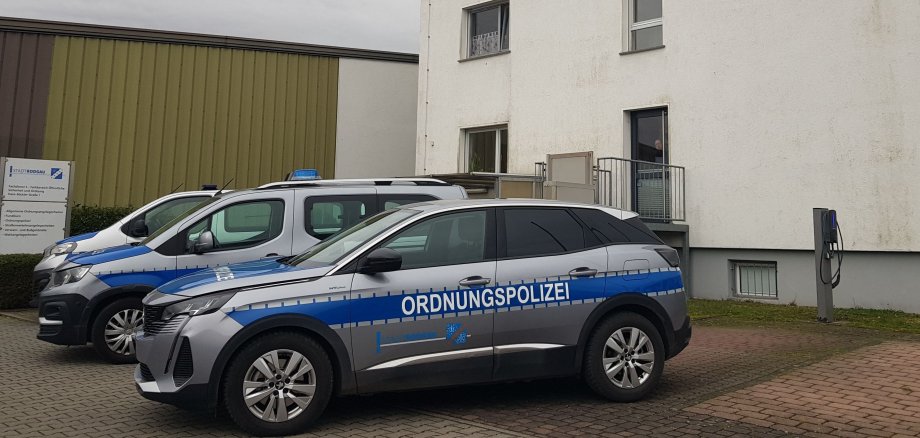The public order police are generally thought to be solely responsible for controlling stationary traffic and speeding vehicles. A look at the wide range of tasks performed by the 9 municipal colleagues makes it clear that this is not the case. They work a two-shift system on weekdays from 7 a.m. to 10 p.m. and one shift on Saturdays. During this time, the public order police not only maintain a presence in Rodgau, but have also dealt with around 500 enquiries from other authorities by mid-September, for example. This requires many on-site visits, sometimes several times, in order to finalise investigations. In addition, there are - albeit rare - enquiries, especially from primary schools, when children are absent from school in the morning without a valid excuse and no one can be reached at the school. Overall, schools take up a large part of the public order police's portfolio of tasks. This includes school route safety in general, but also attendance directly at schools. Here, education and sensitisation of parents are particularly important. Some of the things our colleagues see and experience are frightening: children not wearing seatbelts, disregarding no-entry and no-stopping signs, blocked pavements and endangering children walking or cycling to school in particular. These actions in particular are often not met with understanding and certainly not with realisation on the part of parents. The aim of the operations in front of the schools is similar to that of the checks at around 250 construction sites and the fibre optic expansion, the review of the pavement parking ban or, ultimately, the mobile or stationary speed checks. At this point, let's take another look at the statistics. A total of 1,714,500 vehicles were measured in the first half of the year, particularly during the speed checks with the stationary systems. The result was 2,440 proceedings to which 3,600 stationary traffic proceedings were added. 30 vehicles even had to be towed away because they were obstructing traffic, for example in a no-parking zone, or because road safety was no longer guaranteed. All of the above measures are intended to help ensure that rules are adhered to and that all road users can co-operate with one another in a way that is as safe as possible: Is there enough space for pedestrians, is a possible change in traffic routing easy to recognise, are time limits being adhered to, or does some mediation work still need to be done at some point? Discussions with the public, which are held directly on site, are also part of the day-to-day business of the police. They serve to provide information and, in some cases, to de-escalate the situation. The public order police also accompany larger events such as the carnival procession, the Rodgau triathlon or the timber auction. Here too, the aim is to ensure that the event runs safely and causes as little disruption to road traffic as possible. Other regular tasks include traffic control in the event of a traffic light failure, assisting with elections from the preliminary discussions, setting up the polling station and the "orderly dismantling" after the elections, and also dealing with lost and found animals. From time to time, stray animals are reported, which are then brought to the animal shelter without blue lights, but still quickly, if no owner can be found. This always works - except once: a particularly cuddly ball of fur was quickly "adopted" by the police officer on duty after clarification, is now called Karlchen and is now the department's "official service dog". This proves it: The police are also simply human.
